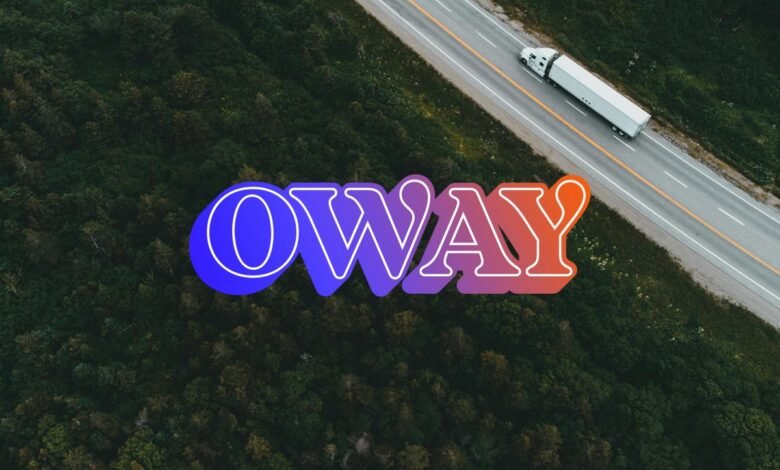YC-Backed Oway Secures $4M to Build Decentralized Uber for Freight

▼ Summary
– Thousands of semitrucks on U.S. highways are often only half full, representing a multibillion-dollar inefficiency.
– Oway, a San Francisco startup, uses AI and ELD technology to match cargo with empty trailer space on long-haul routes.
– The company claims it can reduce shipping costs by up to 50%, such as cutting a pallet shipment from $350 to $140.
– Oway combines the speed of full truckload shipping with the cost efficiency of less-than-truckload shipping.
– Founded in 2023 and backed by $4 million in seed funding, Oway aims to transform U.S. logistics by optimizing trailer space.
Every day, thousands of semitrucks travel American highways with a hidden inefficiency, nearly half their cargo space remains empty. This widespread underutilization represents a massive financial and logistical challenge, one that San Francisco startup Oway aims to solve with a fresh approach to freight matching. Backed by Y Combinator and General Catalyst, the company recently secured $4 million in seed funding to advance its vision of a decentralized, Uber-like model for freight transportation.
Oway’s strategy centers on leveraging real-time data from electronic logging devices (ELDs), which are federally mandated tracking systems installed in commercial trucks. While these devices were originally introduced to enhance safety and compliance, Oway uses them to identify trucks with available space along planned routes. By pairing this visibility with proprietary machine learning algorithms, the platform connects shippers with carriers who have unused capacity, often at a significantly reduced cost.
According to founder Phillip Nadjafov, this method can slash shipping expenses by up to 50%. For example, moving a pallet under 2,000 pounds from Los Angeles to Dallas might typically cost around $350. Through Oway, that same shipment could drop to as low as $140. This pricing model makes it feasible for smaller businesses to ship partial loads without committing to an entire truck.
Nadjafov emphasizes that the current system isn’t just costly, it’s also wasteful. Higher shipping rates lead to increased consumer prices, unnecessary emissions, and idle time for drivers. By filling unused trailer space, Oway believes it can reduce environmental impact while improving efficiency for both shippers and carriers.
The company’s approach blends elements of two established freight models: full truckload (FTL) and less-than-truckload (LTL). While FTL offers speed and direct routing, it comes at a premium. LTL is more affordable but often involves multiple stops and transfers, increasing the risk of damage and delay. Oway aims to deliver the best of both, direct routing with shared capacity, enabling faster, cheaper, and more reliable shipping.
What sets Oway apart is its decentralized structure. Rather than controlling entire fleets or monopolizing trailer space, the platform works alongside existing brokers, carriers, and shippers. This collaborative model allows for greater flexibility and scalability, with the potential to reshape how goods move across the country.
Though still a small team of twelve, Oway has already attracted interest from major fleet operators and international companies. For now, the focus remains squarely on the U.S. market, where trucking represents a trillion-dollar industry, and empty trailer space accounts for an estimated $100 billion in unrealized value.
Nadjafov envisions a future where on-demand, decentralized freight matching becomes the standard, transforming commerce and logistics over the next decade. With fresh funding and a clear vision, Oway is positioned to drive that change forward.
(Source: TechCrunch)
